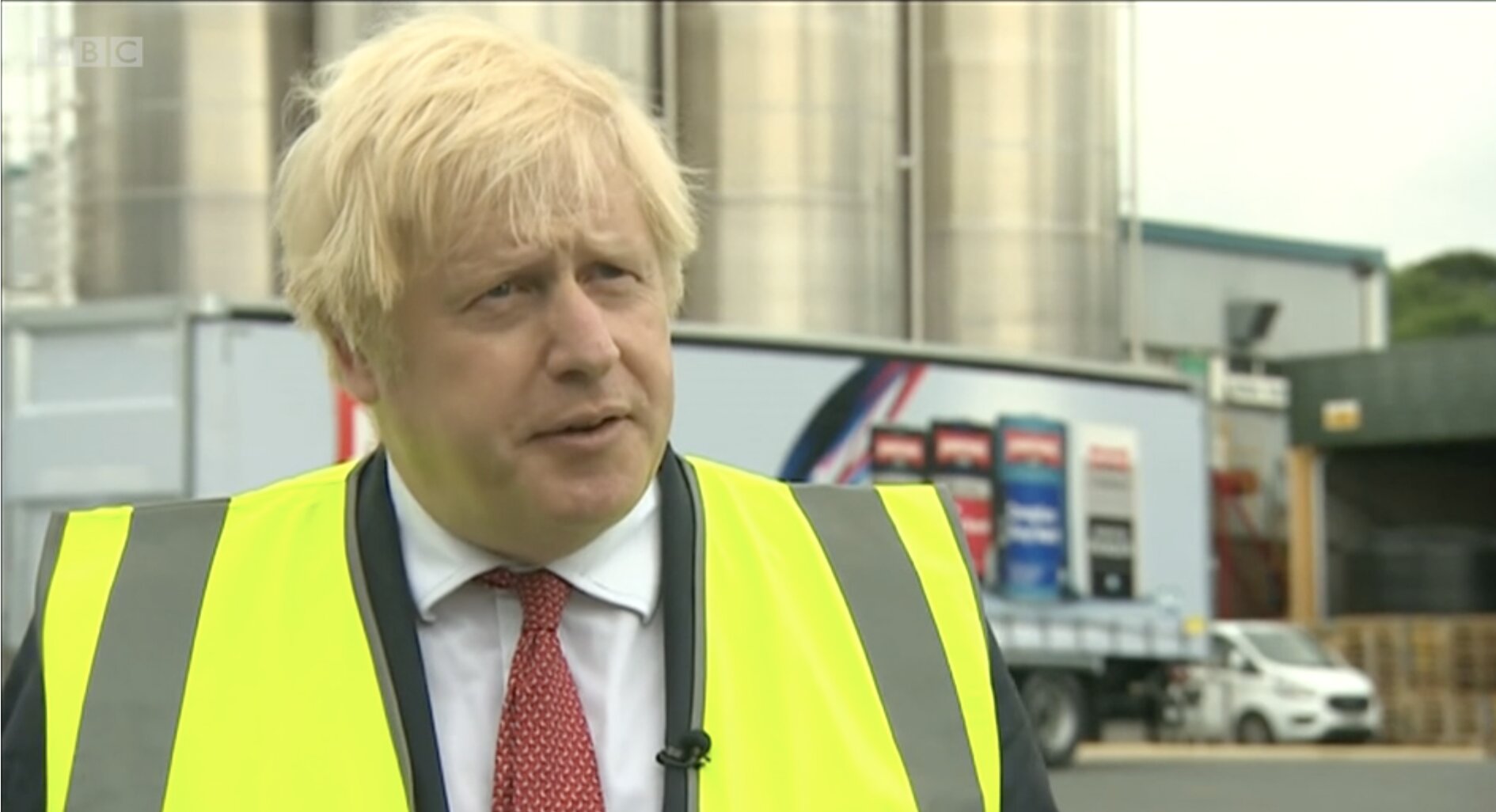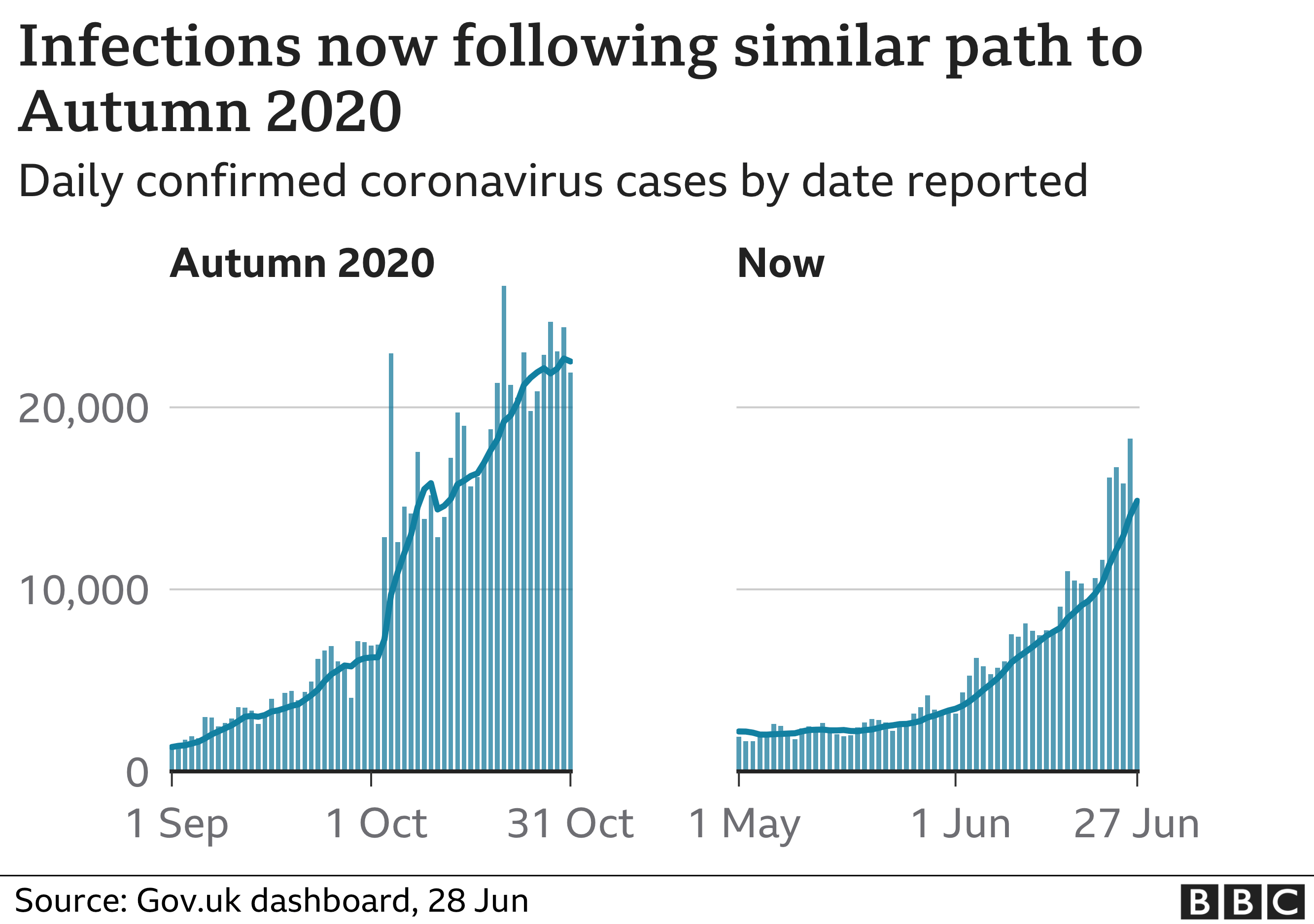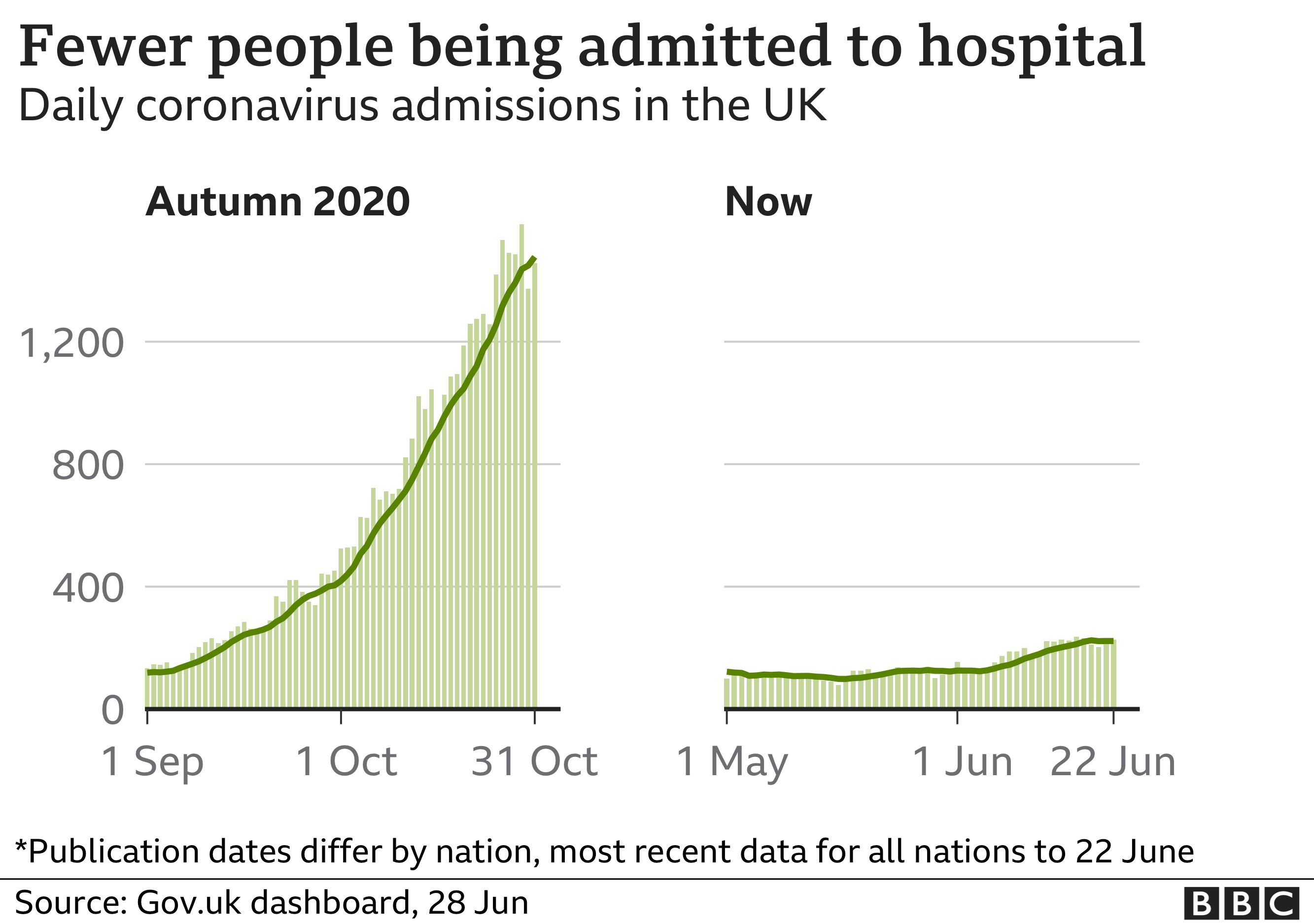
Covid: Easing measures on 19 July very likely, says Boris Johnson
New Health Secretary Sajid Javid will update MPs later on when restrictions in England will be eased.
GreekNewsOnDemand.com comments: Before you read the following BBC article read first MASSIVE LEAK: NEXT STEPS – PERMANENT LOCKDOWN OF UK BY NEIL M FERGUSON (IMPERIAL COLLEGE LONDON MEMORANDUM) because Boris Johnson and his government have ZERO PLANS for letting up on the measures there!!!….
People in England are “very likely” to be able to return to “pretty much life before Covid” on 19 July, Prime Minister Boris Johnson has said.
It was “sensible to stick to our plan” of having a “cautious but irreversible approach” to lifting the remaining coronavirus restrictions, he added.
The final stage of easing lockdown measures was previously put back by four weeks from 21 June by the PM.
New Health Secretary Sajid Javid will update MPs later on the restrictions.
The planned easing on 21 June was delayed amid concern over the spread of the Delta variant.
When announcing the delay, the prime minister promised a review after two weeks.
Meanwhile, Spain, Malta and Portugal are introducing new restrictions for travellers from the this week.
Those travelling to Spain – including the Balearic Islands, which will be on the UK’s green travel list from Wednesday – will need to be fully vaccinated or have a negative PCR test. Malta, which will also go on the green list, will require visitors to have had both doses of a Covid-19 jab.
Travellers from the UK to mainland Portugal will be required to quarantine for 14 days on arrival, unless they have been fully vaccinated for at least two weeks – but these rules do not apply to the islands of Madeira, which is going on the green list, or the Azores.
The Hong Kong government has also announced new measures, banning all passenger flights from the UK from 1 July after adding the country to its “extremely high risk” group.
Speaking on Monday, Mr Johnson said: “Although there are some encouraging signs and the number of deaths remains low and the number of hospitalisations remains low – though both are going up a bit – we are seeing an increase in cases.
“So we think it’s sensible to stick to our plan to have a cautious but irreversible approach, use the next three weeks or so really to complete as much as we can of that vaccine rollout.
“And then with every day that goes by it’s clearer to me and all our scientific advisers that we’re very likely to be in a position on 19 July to say that really is the terminus, and we can go back to life as it was before Covid as far as possible.”
Mr Javid’s address, which will come less than 48 hours after taking the role following Matt Hancock’s resignation, is expected in the House of Commons at about 17:30 BST.
Mr Javid said: “I want to see the restrictions lifted and life going back to normal as quickly as possible. That is my absolute priority. I want to see those restrictions lifted as soon as we can.
“It’s going to be irreversible, there’s no going back. That’s why we want to be careful during that process.”
He was appointed on Saturday evening shortly after Mr Hancock resigned for breaching social distancing guidance.
Pressure had been building on Mr Hancock following the publication by the Sun of pictures and a video of him kissing his colleague Gina Coladangelo. The pair are both married with three children each.


There’s lots of talk about encouraging data. But with infection levels climbing rapidly, how can that be?
The key is in the picture emerging with hospital cases and deaths. When the initial delay to step four was announced, infection rates had just started rising and government scientists were worried about what that could lead to with the vaccination programme not fully rolled out.
The past few weeks have provided clarity about what we can expect. The answer can be found by comparing the start of the second wave in the autumn with what is happening now.
During September and October cases were rising much as they are now.

Within eight weeks that had translated to more than 1,000 hospital admissions a day. This time round there are just above 200.

There is even better news with deaths. Latest estimates show fewer than one in 1,000 infections is leading to a death. At the peak of the winter wave it was one in 60.
This has dramatically altered what can be considered a proportionate response to the virus – and is why a further loosening of restrictions remains on the cards.

The number of new coronavirus cases across the UK has continued to rise quickly in the week since what would have been “freedom day”.
The UK has recorded 116,287 cases in the past seven days – a 70% increase on the previous week’s total.
A total of 22,868 cases were reported on Monday, up from 14,876 on Sunday. However, the government said Sunday’s figure was lower than expected because of a delay to processing data, and that Monday’s total would include outstanding cases.
A further three deaths within 28 days of a positive test have been reported in the UK. There tend to be fewer deaths reported on Mondays, due to a reporting lag over the weekend.
In Scotland, there have been a record number of daily cases recorded with a further 3,285 cases reported on Monday – surpassing the previous high of 2,999 from Thursday.
But the government’s decision on lifting measures will also take into account the progress of the UK’s vaccination rollout.
Latest figures show that 84.4% of adults in the UK have had their first jab and 61.9% have had their second.
Some Conservative backbenchers have urged the government to ease controls quickly, saying the country must learn to live with Covid and that the early investment in providing a vaccine in huge numbers was always intended to achieve just that.
Matthew Taylor, chief executive of the NHS Confederation, which represents health services in England, urged Mr Javid to be a “voice of caution” in the cabinet over the pressures the pandemic is heaping on the NHS.
He told BBC Radio 4’s Today programme: “The number of cases in hospital are rising… we have to keep a careful eye on it.”
Saffron Cordery, deputy chief executive of the NHS Providers organisation, said Mr Javid’s priorities should be tackling the new surge of Covid cases, along with the “huge spike” in demand for emergency services and the backlog of people waiting for NHS treatment.
Prof Sir Andrew Pollard, director of the Oxford Vaccine Group, told Today that if levels of protection from jabs continued then the UK should be in a “very good position”, when asked about restrictions being lifted soon.
He said: “We’re looking at the data that’s coming from Public Health England about the effectiveness of the vaccines and we’re seeing more than 90% protection.”
In Wales, the lifting of coronavirus restrictions has been paused, to be reviewed again on 15 July, while in Scotland it is hoped that the remaining rules will be lifted on 9 August.
Some rules in Northern Ireland will be reviewed on 1 July.
Source >> https://www.bbc.com/news/uk-57630553

